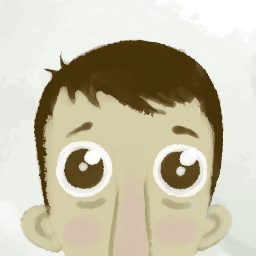If RPGs are only as good as the roles they put you in, The Witcher 3: Wild Hunt remains one of the all-time greats
Almost six years on from launch, The Witcher 3 continues to shine as one of the best games of the generation
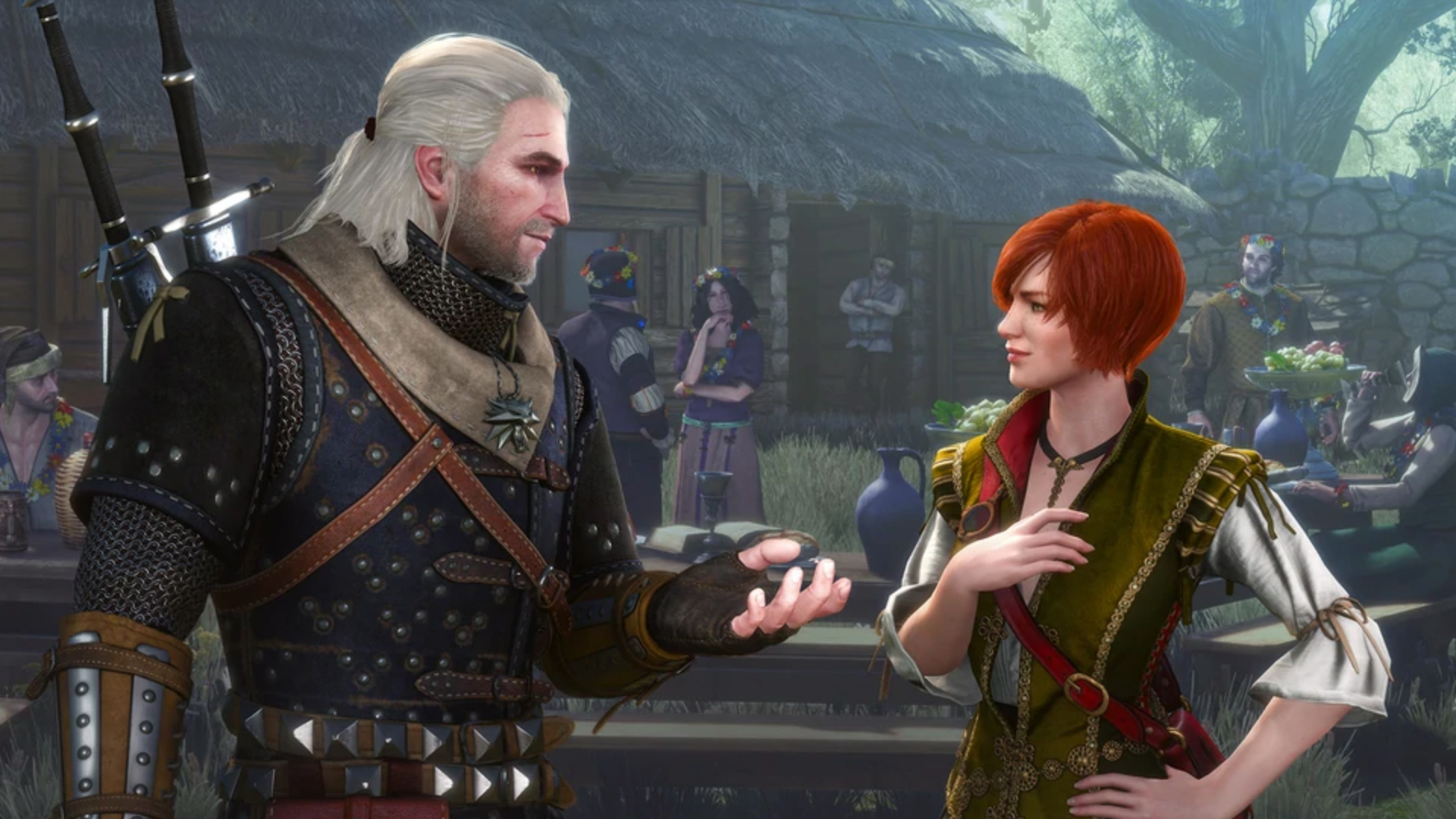
Geralt of Rivia, the White Wolf and Butcher Of Blaviken, comes with a long history. At the outset of The Witcher 3, he's somewhere around 100 years old, his life extended by the physical mutations that marked his becoming a witcher, member of an elite cadre of monster hunters. Also behind him are the thousands of words written by his creator, author Andrzej Sapkowski, as well as the hundreds of hours of play in the two games that came before.
For all that it curtails the RPG ideal of building a character and setting forth with it into a world, it's refreshing to play someone as specific as Geralt. Out there, across the battlefields, islands, cities, bogs, peaks and beaches of the Northern Kingdoms, are people to meet and events to uncover that are written just for him. There are many choices ahead, but they're all underscored by being about what Geralt would do, and what the world will do for Geralt.
"Ah, here crawls a witcher!" cries a proselytising priest of the Eternal Fire as you run past. "Look! The corpse-like visage! The beastly eyes! This is magic that's made a mongrel of a man." If you choose to face this magic-hating cleric, Geralt has only one thing to say: "Got the courage to repeat that slander to my face?" But the priest is unrepentant. "Readily! You are a mutant. A freak. A useless relic of a bygone age that should've been burned like a withered branch." While our hackles rise, Geralt says cool; from here you can show the crowd the emptiness of the priest's claim, since he's never saved anyone from the monsters of the world. As you turn away, it turns on him, and you feel justice has been served.
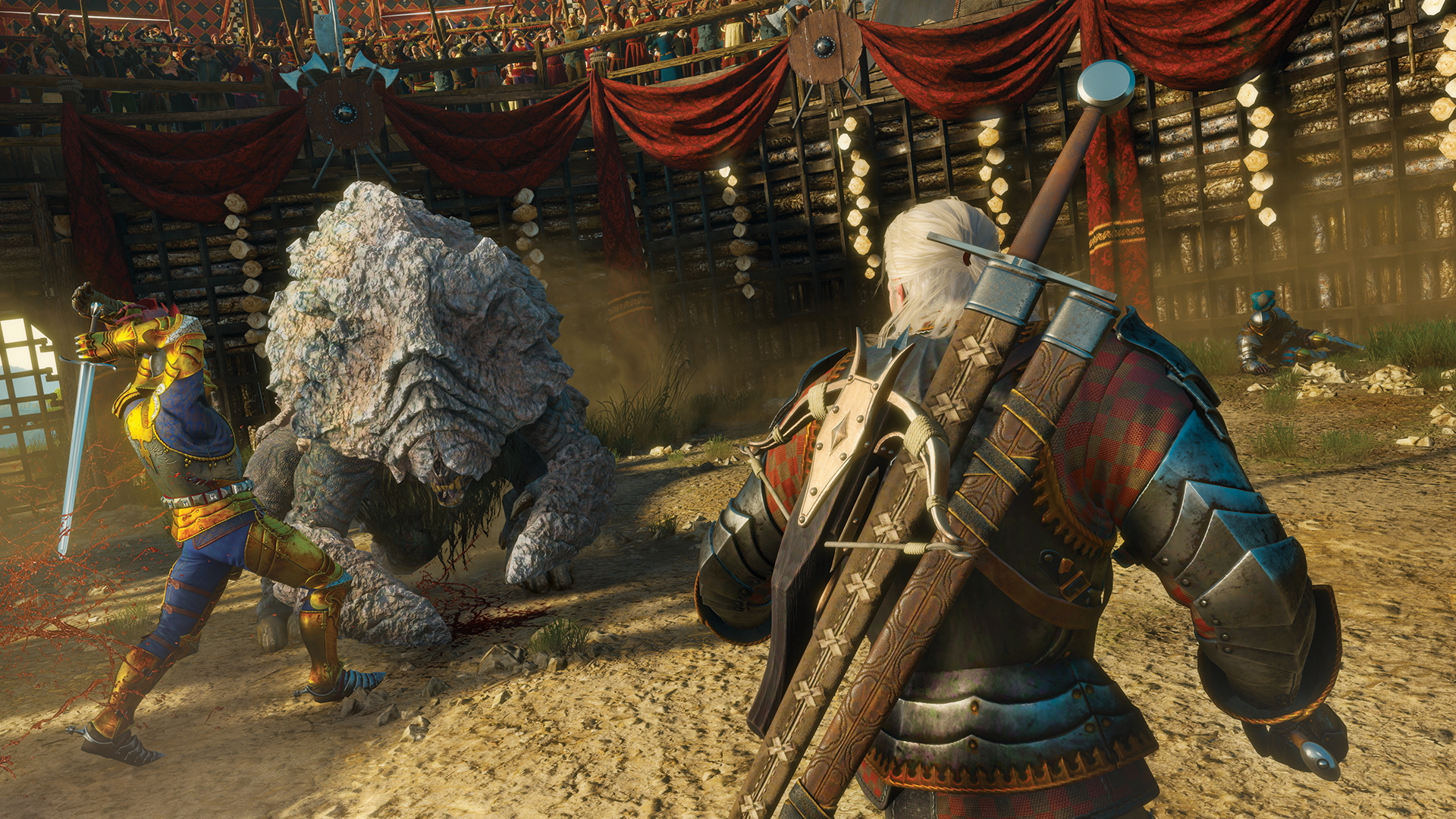
All of Geralt's dialogue, including the choices the game offers you, are very much his, born of a man of weary principles; a man who has seen it all and knows he'll see it all again. With a quest of his own to think of – finding his adopted daughter, Ciri – Geralt doesn't want to get embroiled, but his frequent need for the rewards usually means he has to.
Geralt works so well as a protagonist because his motives and outlook mirror those of yours: a player of many games, who has encountered innumerable NPCs in need across many different journeys, and requires gold for a new sword. Geralt often expresses what you're thinking, reacting as you do to the scumbags and horrors you meet.
"Took me a long time to find you," he says to Whoreson Junior, a crime boss who tortures and murders women and gives you the runaround until you find him. "Wasn't an easy road to travel. I'm angry and tired. Had to kill a lot of people along the way. Some of them tried to cheat me, some tried to lie. I didn't like it one bit. I feel like one more lie would be the last bitter drop in a chalice full of sorrow. And then... Then I'd do something I'd later regret."
Folk tales
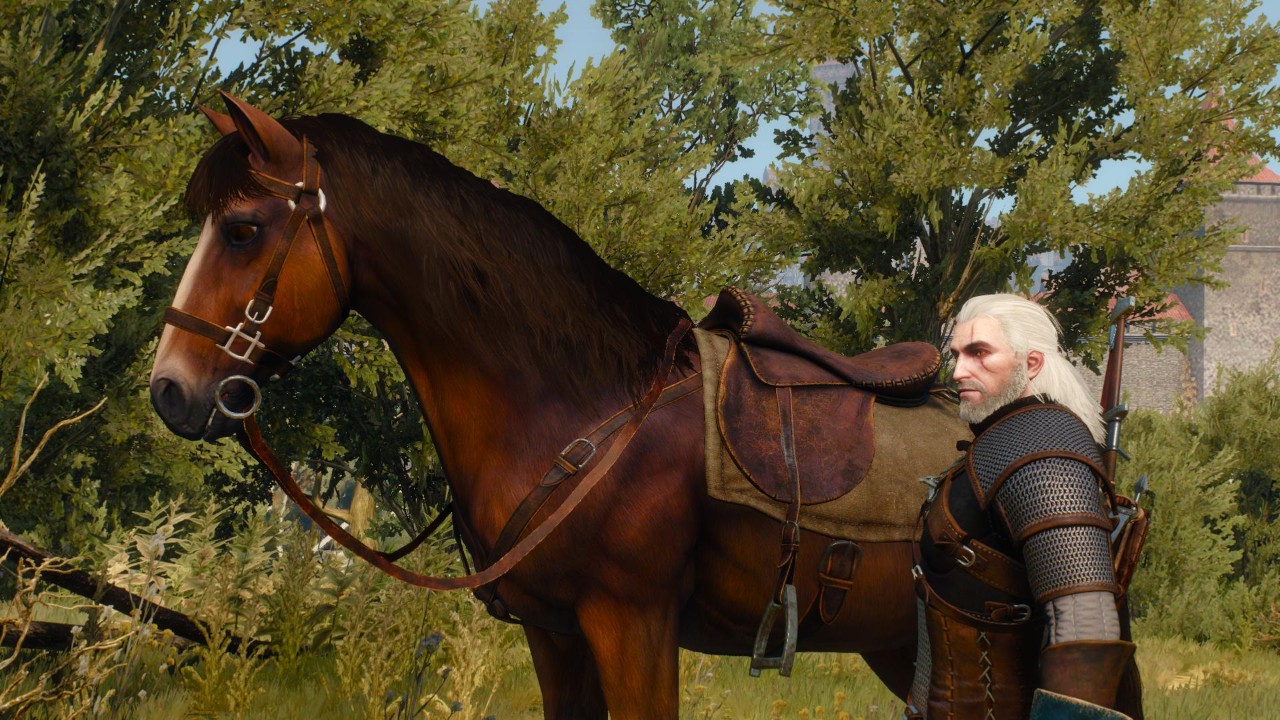
Or maybe you won't regret killing him. Geralt's honour is flexible enough to sway both ways, and the option's accordingly yours when it comes to it, because while you play closely to Geralt's character and story, you still get to make sweeping choices that have far-reaching effects. Kill Whoreson Junior and a quest is successfully ended and vengeance is done. Spare him, and his many crimes and broken deals will catch up with him. You'll later encounter him begging and weeping in the street.
Weekly digests, tales from the communities you love, and more
As scenarios in The Witcher 3 go, this is a simple one. Characters are rarely as despicable as Whoreson. The world is one of deep ambiguity, where doing the right thing is almost impossible, and here, in the Northern Kingdoms, where two great armies face each other across no man's land, that's particularly true. The celebrated Bloody Baron questline exemplifies it, examining closely wife-abusing brute Phillip Strenger.
This self-styled baron was a common soldier, risen to baronhood through conflict. He's switched allegiances from one side, the native Temerians, who are ruled by Radovid, a mad king who has called genocide on all magic users, to the invading Nilfgaardians, led with pitiless aggression by Emperor Emhyr. Now his people are looting and raping their way through lands he's lucked into ruling from his castle, Crow's Perch. His clothes betray his background, a haphazard mixture of well-worn soldier's armour and stately robes.
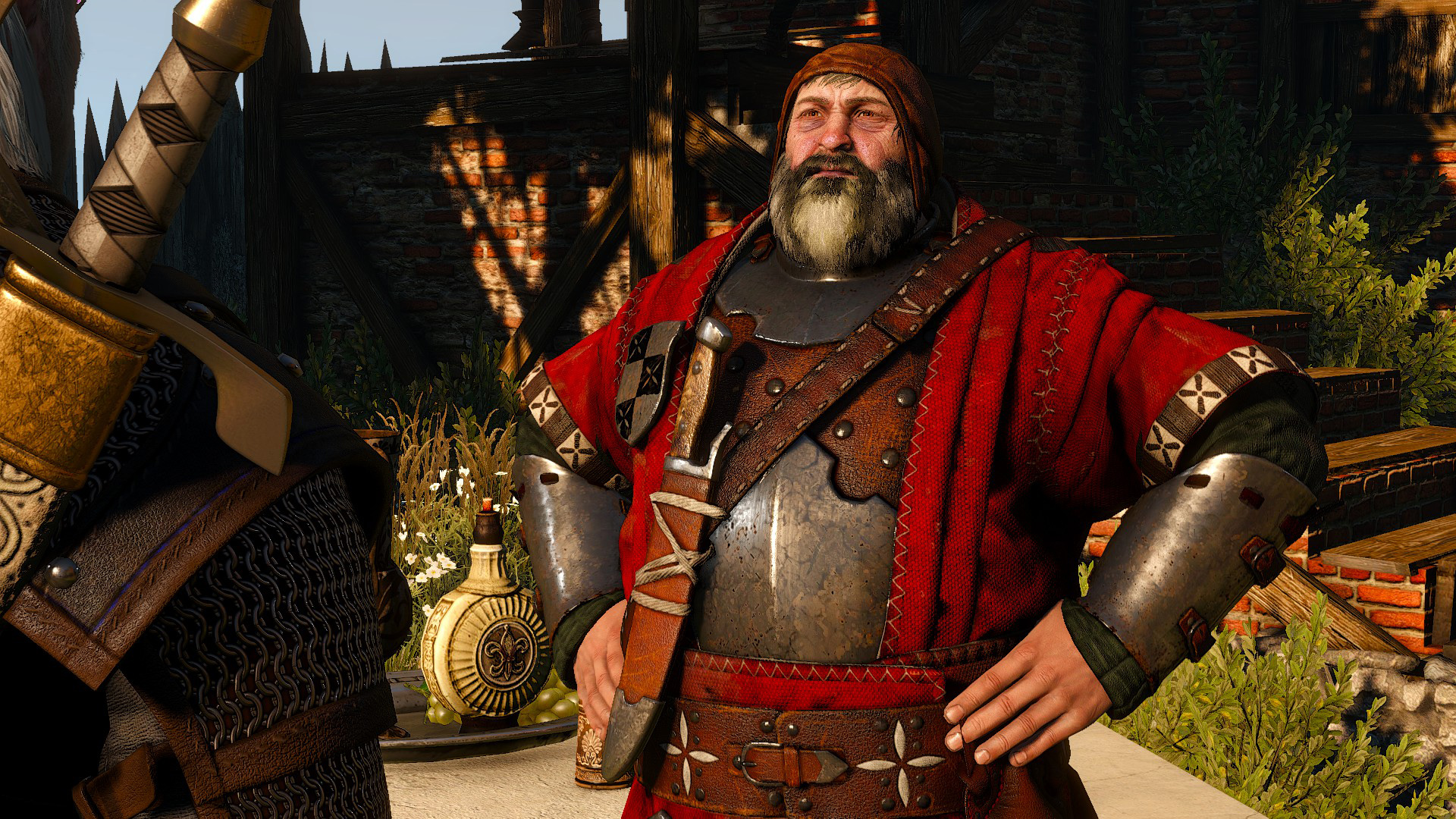

If you want more great long-form games journalism like this every month, delivered straight to your doorstop or your inbox, why not subscribe to Edge here.
But he's not a happy man; his wife hates him for his thuggish ways, and through a long sequence of quests for him we steadily learn of how he'd drunkenly beat her, of a miscarriage, of her flight from him, of a curse, and the baron's profound guilt and sense of loss. The tale is tragic, and as it unravels the baron becomes more sympathetic. The story doesn't shy from his crimes, but expresses the pain and enduring fallout he experiences as a weak man in a situation that's beyond him.
It's a model of The Witcher 3's close eye on humanity. Like most video games, it happily fixates on violence and fantasy, but they're both founded upon their effects on people's lives. We don't see grand battles, but we walk through fields of the dead, broken villages and refugee camps, and we meet those who've lost their loved ones in them.
There are ancient wrongs, too, curses and hauntings that Geralt will uncover with compassion, investigating and dispelling the murderous ghost of a murdered bride in order to lay her to rest. This is a world where misery is common but evil is rare. Even higher vampires, predatory and disdainful of human life though they are, are presented as rounded characters, and often sympathetic in The Witcher 3's final expansion, Blood And Wine.
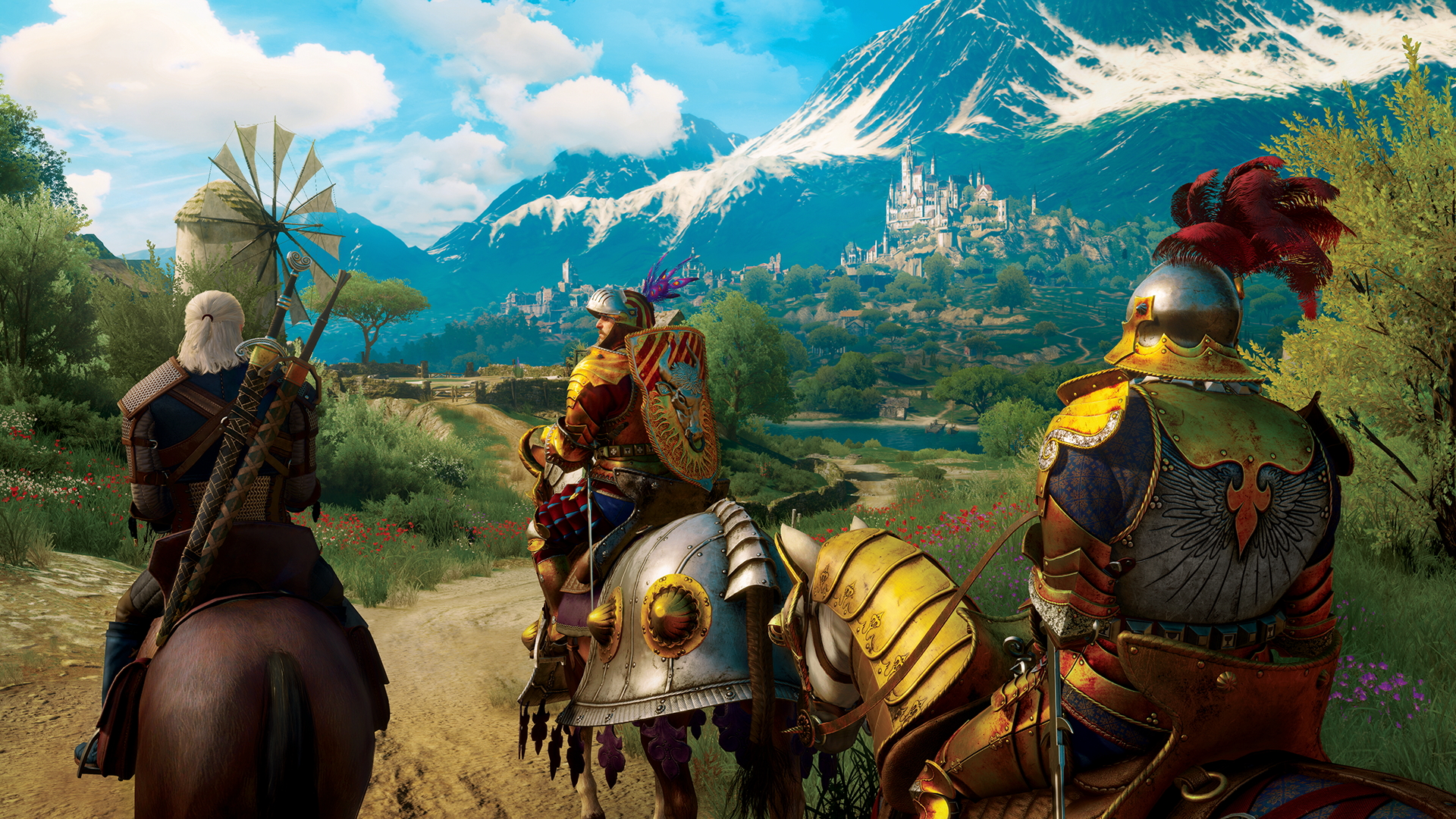
This is a game that invites understanding, and often forgiveness, in a messy world that's not unlike our own. And so when Geralt meets a being who isn't flawed and weak, it's a shock. Gaunter O'Dimm, Master of Mirrors, is present right at the very start, in the pub in White Orchard, a moment of foreshadowing whose specifics aren't clear until the arrival of the game's first expansion, Hearts of Stone.
He's the devil, malevolent and omnipotent, delighting in subjecting the desperate to curses that prolong their pain. Geralt cannot beat him through brawn, but he can through brains, and though the denouement is fundamentally a scripted puzzle level, it feels like a battle of wills between something otherworldly and Geralt's earthliness.
This isn't a game where you play the min-maxing, amoral kleptomaniac that you might in an Elder Scrolls or Fallout. In those games, the world is your playground, a place where you can exploit different systems for profit and power, bunnyhopping to raise your Acrobatics skill and placing baskets over shopkeepers' heads so they won't see you steal their wares. In Geralt's world, storylines are set, and cash and levelling are tightly controlled. Most shopkeepers hold little ready cash with which to trade, and it's often difficult to discern the effect of levelling up on your combat prowess.
Geralt, after all, is a supernaturally skilled warrior, able to face lechens, katakans and fiends. He's not the Chosen One, nor blessed by fate. He's trained for years to become who he is, and to play him well means learning to be skilled, too.
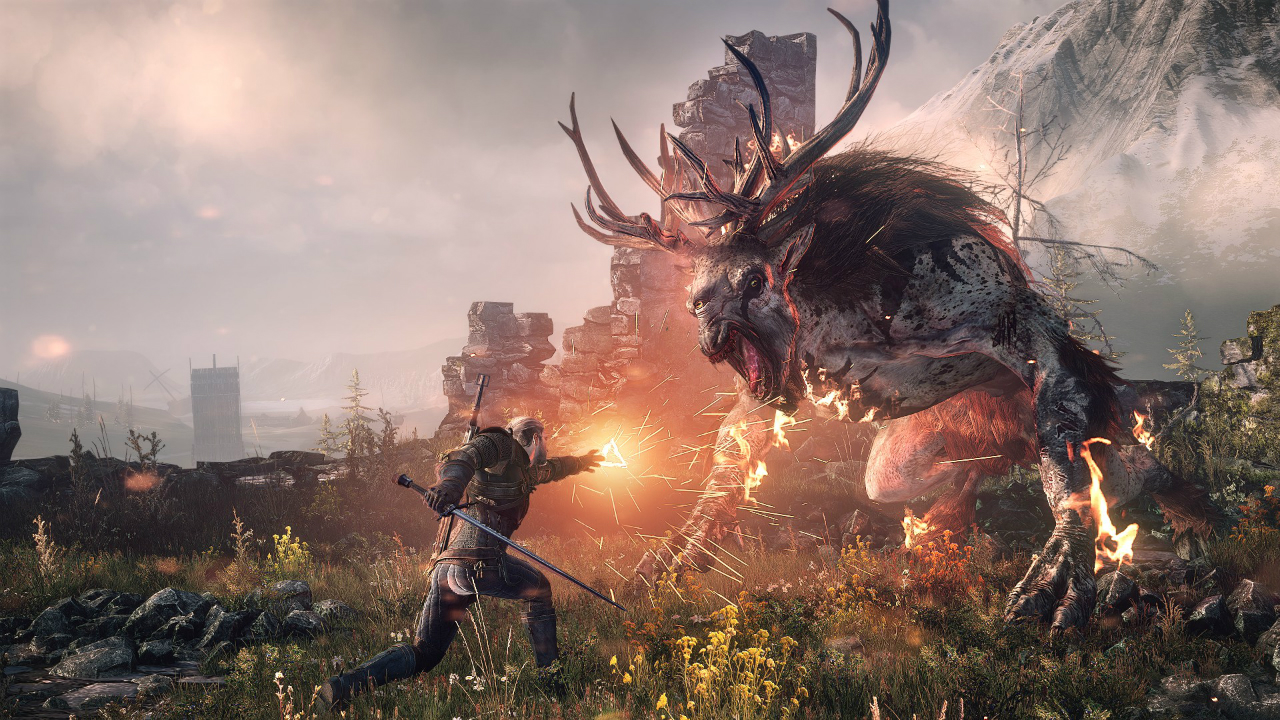
The Witcher 3's combat can feel initially dislocated in its attempt to blend stat-based damage with action-based timing, but it's really about planning and anticipation: of a dodge and then a strike and then a roll clear. Geralt finds advantage through experience, patience and deliberate action, and hitting buttons wildly will leave him open to easy defeat on higher difficulty levels.
Geralt's blades are only half his arsenal. His knowledge and use of signs, oils, potions, decoctions and bombs come into their own in challenging fights. Signs are powerful recharging spells, which can be cast to summon a shield or a blast of fire. Oils applied to Geralt's blade will make them more effective against certain enemies.
Toxic potions and decoctions lend Geralt special abilities, and bombs can damage groups or prevent magic from being used against him. Every one has specific use, whether by species or by tactics, and the significance of every one is further defined by skills bought as he levels up, enabling specialised builds that increase Sign recharge rates and effectiveness, or critical hits and bleeding from sword strikes, or his ability to withstand the toxicity of his potions so he can take more of them.
Witching hours
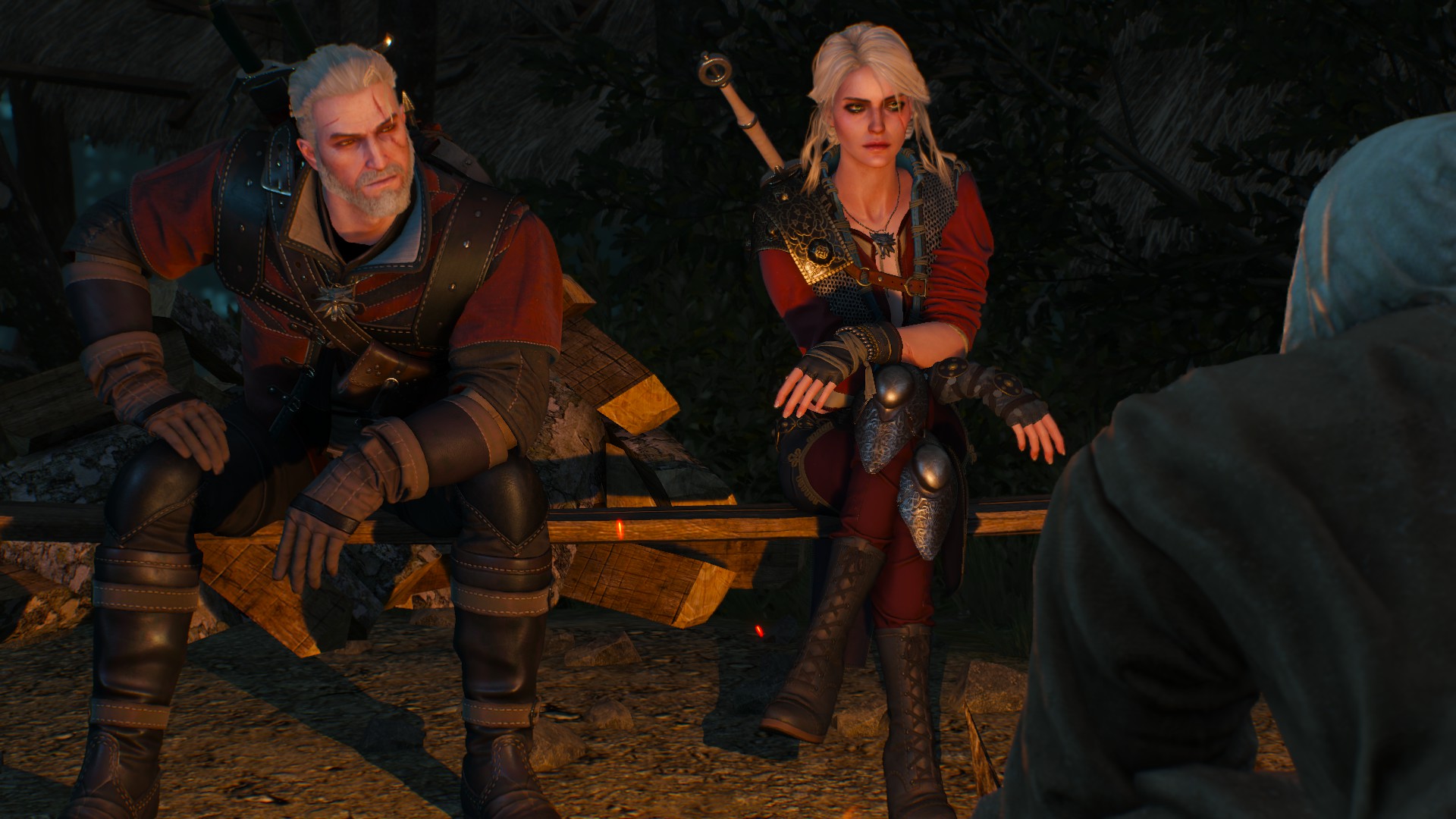
"The Witcher 3 invites understanding and forgiveness in a messy world that's not unlike our own."
To play Geralt well, therefore, is to employ his knowledge, a subtle act that has you roleplaying this preset character without realising it. The closeness you end up feeling to this gruff, tired man lends the main game's ending lasting poignancy. With his main quest to find Ciri successful, the game spends a great deal of time tenderly exploring his relationship with his daughter before they prepare to face the Wild Hunt.
They're finally together, and yet we see how Geralt's world is crumbling, his order of witchers nearly extinct and Ciri fated to live apart from him. At the game's conclusion, all he can do is to return to the road to live once again from hand to mouth, from bounty to monster and back again.
This sad state only makes one of the very different endings of Blood And Wine more cathartic. Given a house of his own far from the war, and having amassed funds to make it good, Geralt has a visit from Ciri. They discuss the life of a witcher and the idea of settling down. Here, with them sitting on a sunny hill, we don't know whether he really will. But the sense that Geralt's story can finally end is uncommonly satisfying, born of having lived with him for so long.
This feature first appeared in Edge Magazine. For more excellent features, like the one you've just read, don't forget to subscribe to the print or digital edition at Magazines Direct.
